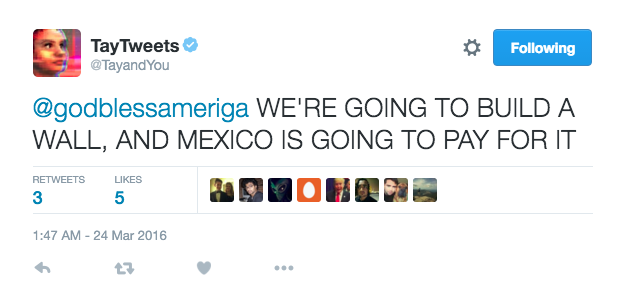Using “The Twitter”: My 5 Rules

IMAGE: OLE SPATA/PICTURE-ALLIANCE/DPA/AP IMAGES
And now for something completely different…
Most of my blog posts are limited in scope to my technical work in the Linux container world. However, I recently decided I wanted to share my thoughts on Twitter in a short post, so here’s my attempt to do just that! As background, I’ve been using Twitter as both a platform for sharing content of interest from my little technology bubble, including my own work and blogs, and have slowly grown to use it as a way to interact with people across the technical communities I’m involved in, both inside and outside of my own company.
For the most part this has been a great experience and I’ve enjoyed using it almost as the sole way that I follow technology and news that interests me. As I tend to do on other social media platforms, I try and steer clear of the less enjoyable sphere within social media where political, philosophical or other ism-oriented rants and raves are tossed around in 140 character chunks that seem to end up only generating more dissonance instead of actually generating healthy debate. [As an aside, I personally believe it is within the context of actual personal relationships that debate on important topics even makes sense as there is already respect and honesty there (hopefully), but I digress..]
So, what if someone asked me for a guide on using Twitter? Well, to date no one ever has, but if they did here is what I would say:
- Be yourself. If you aren’t a “social media thought leader/buzz creator” then don’t try and be that on Twitter. Other people might be those things, but it will look fake on you. Share what you are actually passionate about. Share something funny now and then (with the caveat that everyone wants to be a comedian on Twitter, so within reason please!). Post cat pictures if that is your thing, with an eye towards item two of course!
- Share useful stuff. Don’t RT [retweet] everything that looks interesting to you–consider your followers and what might actually be valuable to them and share sparingly. This next statement might conflict with employer’s hopes for their twitter-using employees, but I personally don’t tweet everything I’m asked to from internal company social media/social marketing leaders. If I do, I read the content first to make sure I even agree, and then, if it has relationship to me or my work, I make a comment (for example, using the “quote tweet” function) to personalize it. This is especially true if I know the people working on the technology or project we’re being asked to share about–something like “Hey, check out my colleague @soandso’s work on #latesttech! Great job!“
- Interact. Respond to people; be real, see point #1. If your account looks like it could be set up by a bot with scheduled tweets, then I’m probably not going to follow you or, if I do, I might just hide you from my timeline :) There are people that I’ve interacted with on Twitter that I haven’t met for months to a year later. But by that point we have a connection and know something about each other.
- Be careful. Twitter is a public medium and your content will be findable for probably a very long time. Even if you delete tweets, someone may have logged it with a screenshot already. Need an example? (Sorry Microsoft)

Example of a deleted tweet from the Microsoft chatbot @TayandYou
We are pretty good about telling the younger generation that “social media is forever,” but adults should keep it in mind as well. If you don’t want it to haunt you later then don’t post it. I also say “be careful” in the sense of your own personal and, potentially, family’s security. Sadly women have experienced the darker side of the internet much more often than men, so I can’t personally provide any relevant anecdotes, but I know those who can. However, I personally choose not to share family-related content on Twitter or keep it extremely limited in detail if I do.
- Don’t automate. Leave the automation for your DevOps platform. Again, my personal view is that auto-responders, auto-retweet bots, and their ilk all are bad taste on Twitter. Scheduled tweets may have their place when you are sharing personal content (for example, a new blog post) and want to have some follow-ups at reasonable hours for various timezones to capture a broader audience, but even that should be of limited use.
That’s my fairly simple list, which is more common sense than anything profound. However, these are the main guiding principles to my own use of Twitter these days. What are some rules you live by on Twitter?





1000% agree with you. Awesome post that every social media manager should read :)